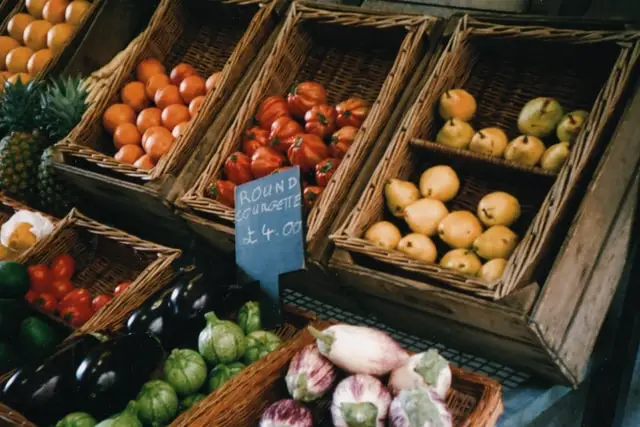First launched in 1945 following the creation of the United Nation’s (UN) Food and Agricultural Organisation, World Food Day (16 October) aims to celebrate the advancement of food security globally.
Over the years, it has presented a unique opportunity for countries across the world to mark their collective progress against UN Sustainable Development Goal 2, which is to end hunger, achieve food security, improve nutrition, and promote sustainable agriculture.
As the annual day approaches once again, however, the events of the last 18 months have inevitably posed real threats to achieving these ambitious goals. In the UK in particular, the challenges brought by COVID-19, coupled with the ending of the EU transition period in January and the associated consequences, have led to unparalleled scrutiny on the UK food system, and this is only set to continue in the months to come.
All the way from farm to fork, critical questions have been raised about the resilience of our supply chains; the sustainability of our current workforce; the future of consumer shopping habits, and on a starker level, people’s access – or more so, lack of access – to food.
As well as bringing unrivalled threats to global public health, the Covid-19 pandemic created an economic and food security emergency for millions across the globe, including here in the UK. Whilst businesses, charities and the public rallied to get food to those who needed it most, Covid-19 has highlighted the bleak reality of just how far we are from achieving food security.
This was particularly apparent amongst children and young people, who through the closure of schools at the height of the pandemic, were suddenly left without Free School Meal provision and breakfast clubs, which provide a real lifeline for so many. Despite the heroic efforts of teachers and school staff, many families faced extreme anxieties about how and when they could next feed their children.
Arguably, one of the better things to come from such a dire situation was the inspiring campaign work of footballer Marcus Rashford MBE, which led to a Government U-Turn on providing food for children over the school holidays – helping to put the topic of children’s right to food firmly on the political and media map (and PLMR’s Kids Meal Map, of course!). However, this is potentially only a sticking plaster at present as the Holiday Activities and Food Programme, launched as a result by the Government, is due to end in December 2021, with not much to be said for the longer term plans.
Wider developments in the sector also brought into question deeper issues around food security, including the disparity between people having access to food, versus the type of food people have access to. Equality, choice, promotion and affordability of healthy options were just some of the many issues – and opportunities – highlighted in Henry Dimbleby’s independent review of the National Food Strategy, released in July of this year.
Alongside recommendations covering everything from sustainable farming techniques and new food technologies such as alternative proteins, the Strategy made clear that if we are to improve nutrition, encourage healthy diets and ultimately create a food system which is accessible to all, then urgent, radical and moral action is required by Government, institutions and businesses.
This is all of course against a backdrop of the challenges presented by Brexit, which food businesses are constantly working to navigate and overcome. This includes delays at ports and shortages of all kinds, especially labour and HGV drivers, creating unprecedented volatility within the supply chain which is forecast to worsen come Christmas.
With COP26 also fast-approaching, it is not before long that the UK Government and the food, drink and retail heavy weights will be held to account on their environmental track records and plans to reach a whole host of benchmarks, including Net Zero. Whilst organisations have still made real headway, for many food businesses the priority of the last year has been to keep business and services afloat, in exchange for any environmental advancements.
Despite the challenges that have been faced, over the last two years the UK food industry has demonstrated its agility, and we have seen how much be achieved through collaboration and a lot of goodwill – be that across Government departments and parliament more widely, alliances within the food industry, or simply playing out within society.
The next few months present a real opportunity for organisations across the food sector to both take on the learnings of the last 18 months, and to really maximise this next stage of the pandemic recovery which is arguably the closest we have come to “normality” since it all began. With COP26 on the horizon, Government, businesses, campaign groups and general citizens must all play their part in showcasing their commitment – and importantly actions – to creating a more sustainable, greener and fairer food system. Similarly, the Government’s long-awaited response to the National Food Strategy is due in the winter, whereby consultations are expected to be launched, and sector voices must be heard loud and clear.
Despite the UK food industry experiencing increased scrutiny which is set to continue, if Government and businesses take the necessary action, it may just lead to the overhaul which is required to fulfil some of the basic principles celebrated by World Food Day – ending hunger, achieving food security and creating sustainable food systems.





